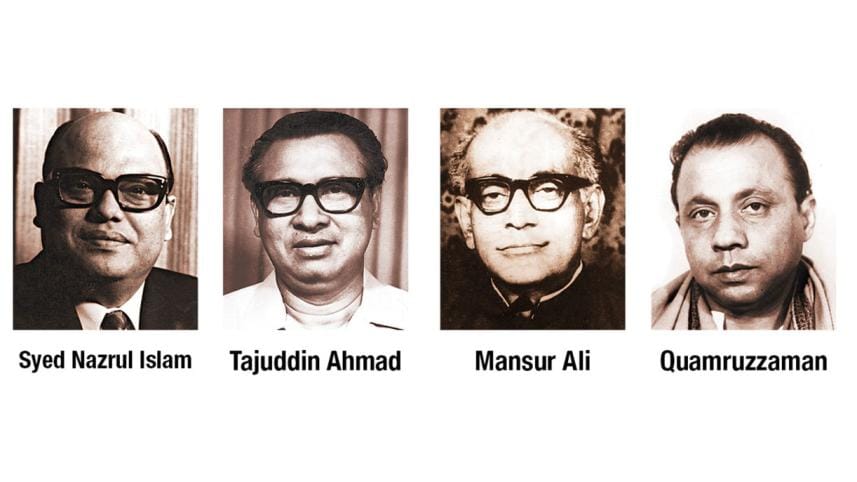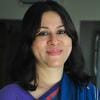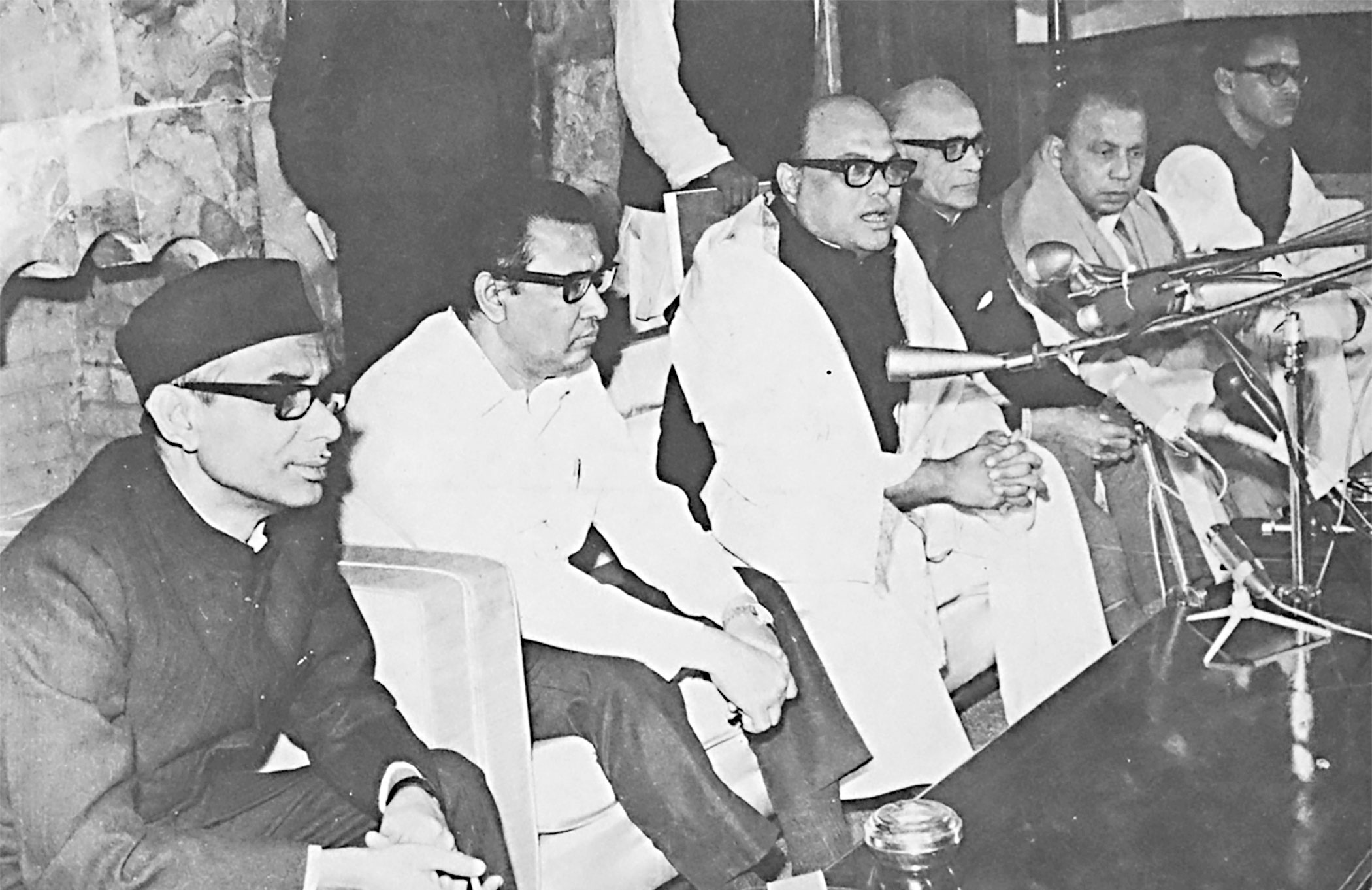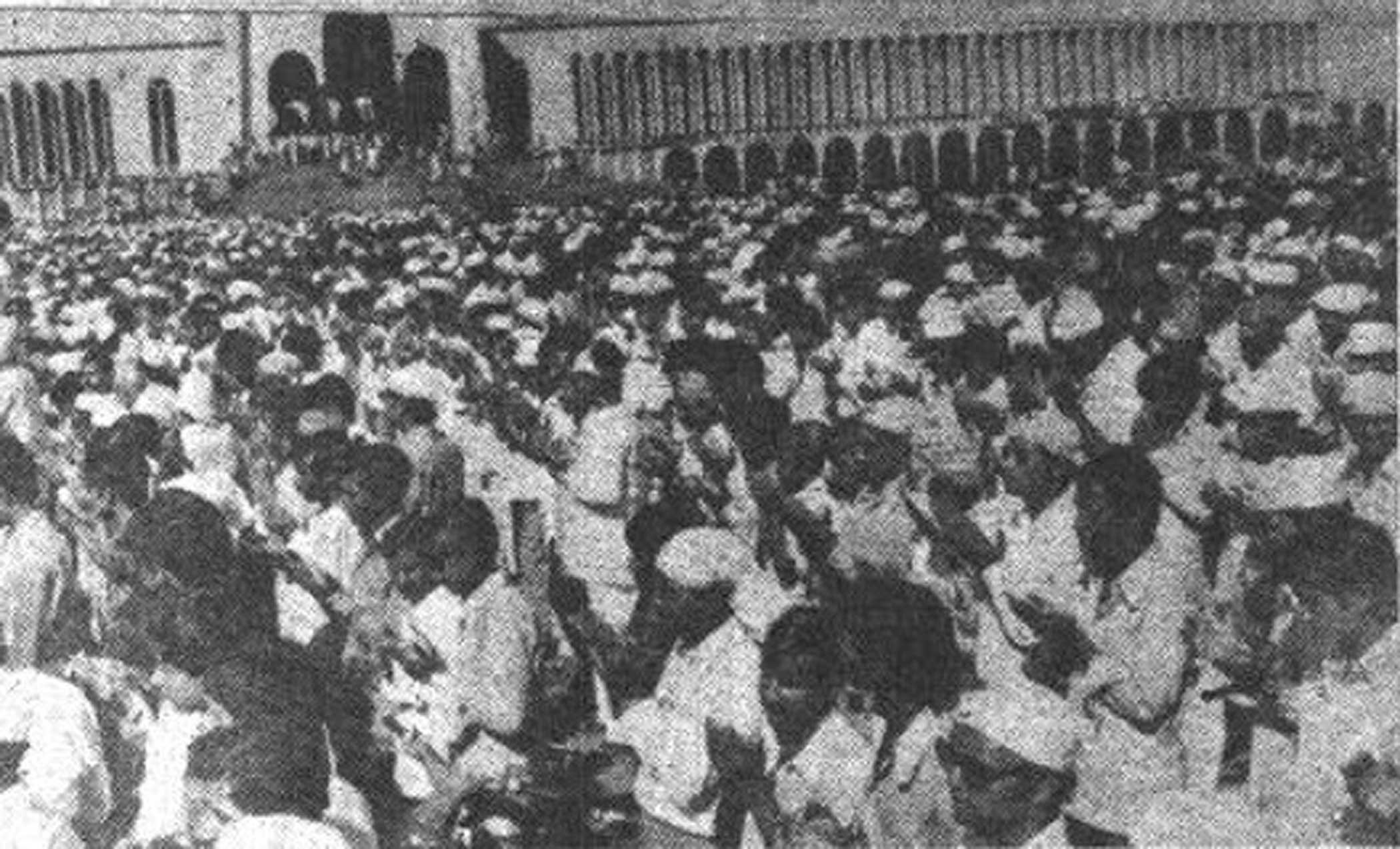‘Those in power are often the biggest obstacles to justice’

Sharmin Ahmad is the eldest daughter of Bangladesh's first Prime Minister Tajuddin Ahmad. On the occasion of the Jail Killing Day, she talks to Emran Mahfuz of The Daily Star about the assassination of four jailed national leaders, including her father, on November 3, 1975.
Many believe the motive behind the jail killings was to leave the pro-independence forces without leadership. What is your opinion?
These leaders were indeed the life force of the Liberation War. When Bangabandhu Sheikh Mujibur Rahman was imprisoned in Pakistan, the war didn't stop. Tajuddin Ahmad drew up the structure of a government and led the war, upholding our dignity. Had a government not been formed, the war could have been branded as terrorism by separatists. That foresight is what propelled the war forward, and also enabled the government to establish diplomatic ties with the outside world. India came forward. Both military and civilian fronts took part in the war under the wartime government's leadership.
It was largely to their credit that the aspiration for freedom of about 75 million Bangladeshis was realised. Those national leaders, during an uncertain time, led the war with thoughtful clarity and precision. The anti-liberation forces realised that killing only Bangabandhu would not be enough. They had to finish off these smart, patriotic men behind our liberation.
You were very young at the time. Today, do you think there was an international conspiracy, too?
If one's home is fragile, anyone from outside can break in. International conspirators are always lurking with their own agendas. They exploit weaknesses. Look at who formed the government after the killings in 1975, who went to the radio station after Bangabandhu was killed. Especially Khandaker Mostaq Ahmed, Taheruddin Thakur, and Mahbub Alam Chashi—they were from Awami League and conspiring from inside. If anti-revolutionaries take over, will they spare the revolutionaries? It is the wolves in sheep's clothes who realise the agenda of international conspirators. It is at home where the problem begins.
You mean to say internal weaknesses provide external enemies with an opportunity? How do we uncover the truth then?
To uncover the truth, we need to start with self-criticism. And we must know and preserve history in an unfragmented, whole form. I remember after my father was arrested, when my mother, Syeda Zohra Tajuddin, went to see him in jail, he repeatedly told her, "Send word to the Awami League MPs who are not in jail—they must not go to the October 16 meeting at Bangabhaban to support Mostaq." Even after the message was conveyed, many still attended that meeting. See, things were happening from the inside.
We must put emphasis on two things: our own weaknesses first, then any external conspiracies. If your front door lock is strong, a thief will think twice before coming. But if the lock is broken and the door is shaky, thieves can come anytime. It is we who must strengthen our own house.
Look at the July uprising. Awami League keeps saying it is an "international conspiracy." But they are not talking about themselves at all. They don't even regret the mass killings committed under their regime. Their limitless corruption, rigged elections, repression—people could not stay silent seeing all this. The reality is that no one can force a mass uprising. If the people do not want, a mass uprising cannot happen. We must know the correct history.
I remember reading in a memoir that Tajuddin Ahmad once told Ataur Rahman that the way Bangabandhu was running the country, he would finish himself and them too. So where do the anti-liberation forces come in?
This is why I said earlier that we need to self-criticise. Since independence, Bangladesh has been moving away from the aspirations and objectives of the Liberation War. Establishing a foundation of equality, social justice, and human dignity for the common people has not been a priority. Instead, protecting personal and family interests became the main focus.
Did the jail administration then fulfil its responsibility in preventing the killings?
No, they did not do their job properly. I first started researching the jail killings in 1987. I interviewed an investigator of the case, Bir Uttam Brigadier Aminul Haque, a member of the Jail Killing Investigation Commission, Justice K.M. Sobhan, politician Abdus Samad Azad, and others who were in prison at the time with the four national leaders.
Brigadier Haque later became NSI chief under the Khaleda Zia administration. On the orders of Major General Khaled Mosharraf, he interviewed the then DIG-Prisons Abdul Awal and others. The DIG said: "We could not fulfil our duties and the killings happened before our eyes." Had they truly done their duty, our national leaders could have been saved. Even then, the DIG-prisons told the killers, "You cannot enter the jail with weapons; this is illegal. Who sent you?" They replied, "President Mostaq sent us." They also said clearly that they came to kill.
The then IG Nuruzzaman phoned the president at Bangabhaban. Major Abdur Rashid answered the phone. Rashid asked to let them enter. Then the IG requested to speak to the president, who came on the phone and asked them to do as Rashid said. This was published in news reports on September 25, 1996, based on statements from the then IG and DIG-prisons. On that fateful day in 1975, in the face of illegal and murderous orders from the president and his accomplices, everyone got scared. Not a single officer did his duty that day. Only the DIG tried to protest when the killers entered with guns.
How did you receive the news?
Early in the morning of November 3, my mother woke up. She came to our room and said, "I had a nightmare." She saw my father sitting on a throne in a flower garden, wearing a white shirt. And in the sky there was a midday sun, but it was bright blood-red like a setting sun. And streams of red, like blood, were falling from that sun and turning my father's white shirt red. Someone was saying: "A terrible crisis is coming upon the country, terrible crisis."
My mother was restless after that dream. Everyone had a sinking feeling. Some fighter jets flew very low over our house. But we got no news—the radio was shut. We went to my uncle's house. My father's brother, Mafizuddin Ahmed, was very ill. There was no phone at their house. From the nearby house of Advocate Meherunnesa, a message came that an urgent message needed to be given to my mother. That only Begum Tajuddin should come.
So my mother and I took a rickshaw there. And outside her house, Dr Karim was standing. Crying, he told my mother, "Tajuddin and the other three have been killed in jail." My mother seemed to freeze. No words came from her mouth. I cried out, "This must be false news."
Were the bodies handed over directly? Was there a postmortem?
The postmortem report said they were shot dead. No other detail. A case was filed at Lalbagh Police Station. All of that was suppressed. Until 1996, when the Awami League returned to power, everything was covered up.
Mostaq passed an ordinance that the killing of Bangabandhu would not be tried. And when General Ziaur Rahman came to power, he made that illegal ordinance permanent. So we see how politicians and those in power often become the biggest obstacles to establishing justice. They only look after their own interests. That is why the jail killing case also progressed the way it did. The real conspirators got political protection. Those who fired 60 rounds inside the jail and murdered the four national leaders escaped. Some were given life imprisonment in absentia. One could say, there was a mockery of justice.
What is your comment on the contemporary political situation? In November 2024, you said that Awami League leadership should apologise to the nation. Why did you say that?
What I hoped for did not happen. Despite the mass uprising, the country remains in a troubling vacuum of leadership. Also, instead of reflection, the Awami League leadership continues to deflect blame and target those who speak the truth. But this pattern is not theirs alone. Those currently in power, and all major political parties, have yet to rise to the moment with the humility and foresight the nation deserves.
Healing begins with courage—the courage to admit mistakes. When leaders embrace the truth, they break the cycle of blame, improve their actions, and help the country move forward. Accountability is not a weakness; it is the first step towards renewal.
My father, facing death, planted hundreds of flowers inside the jail compound. In doing so, he planted hope. We must do the same, with truth, humility, and vision.
Follow The Daily Star Opinion on Facebook for the latest opinions, commentaries and analyses by experts and professionals. To contribute your article or letter to The Daily Star Opinion, see our guidelines for submission.





 For all latest news, follow The Daily Star's Google News channel.
For all latest news, follow The Daily Star's Google News channel. 

Comments